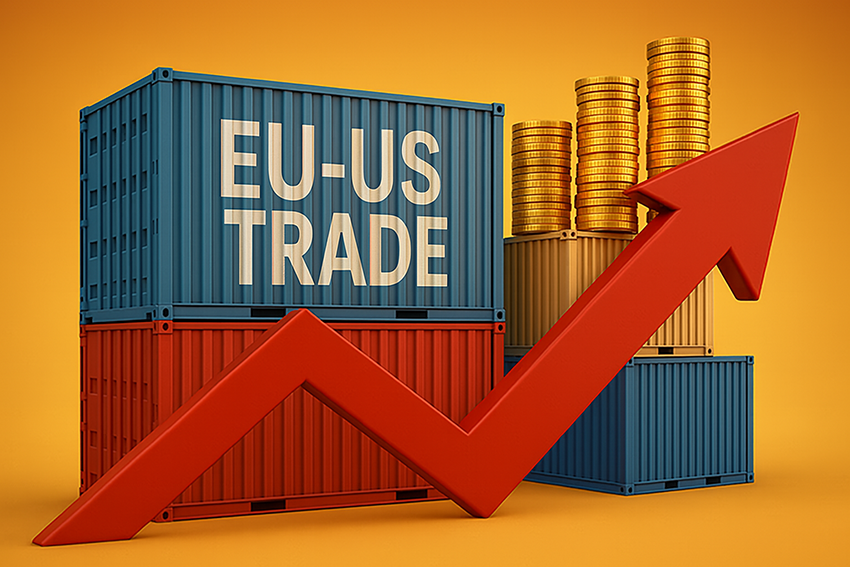2025-07-29
indicators

The European Union’s new trade agreement with the United States, concluded on Sunday, has sparked a wave of mixed reactions across European capitals. The deal, which imposes a 15% tariff on EU exports to the US, has been framed by some as a pragmatic resolution to escalating trade tensions, while others see it as a capitulation that may damage the bloc’s long-term economic interests. European Trade Commissioner Maroš Šefčovič described the agreement as the best outcome achievable under the current circumstances. With the US previously threatening to impose 30% tariffs across a wide range of goods, Šefčovič argued that the deal helped avoid a more damaging scenario and provided much-needed clarity in transatlantic trade relations. Speaking at a press briefing, he acknowledged that the compromise was far from perfect, but maintained it would stabilize an otherwise deteriorating relationship between the two trading powers. Not all European leaders shared his assessment. French Prime Minister François Bayrou called the outcome a “grim day” for the continent and criticized the EU for what he described as subordination to US interests. Hungarian Prime Minister Viktor Orbán also condemned the result, stating that President Trump had “served von der Leyen for breakfast,” in reference to European Commission President Ursula von der Leyen. In contrast, Italian Prime Minister Giorgia Meloni praised the deal for averting a potentially destructive economic confrontation, labeling the 15% tariff level as sustainable given the alternatives. In the Czech Republic, responses have also been divided. Agriculture Minister Marek Výborný told the Czech News Agency that while the result was not worth celebrating, it at least brings an end to the prolonged uncertainty that has surrounded EU-US trade relations in recent months. Industry and Trade Minister Lukáš Vlček echoed this sentiment, emphasizing that the deal was not ideal but preferable to a deeper trade conflict. Economists remain cautious about the potential effects on national economies. David Marek, chief economist at Deloitte, estimated that the 15% tariff could reduce the Czech Republic’s GDP by 0.3 to 0.4 percent. He noted that key export sectors such as machinery, electronics, chemicals, and pharmaceuticals would likely bear the brunt of the impact. Analysts at the Czech News Agency also projected a slight slowdown in the Czech economy as a result of the agreement, particularly if certain sectors struggle to absorb the new costs. Meanwhile, market reactions have been volatile. European stock indices initially surged to a four-month high following the announcement but later retreated as investors reassessed the long-term implications. Reuters reported that the deal largely favors Washington, with Brussels lacking sufficient leverage to extract better terms. Despite the criticism, some observers viewed the agreement as a necessary step to avoid broader economic disruption. Pavel Peterka, chief economist at XTB Czech Republic, argued that while the tariff is far from ideal, the greater risk had been an uncontrolled escalation in trade tensions. He said that a full-blown tariff war could have triggered higher inflation in the Czech Republic and dampened global demand for Czech exports, outcomes that have now likely been averted. Industry groups were quick to assess the practical impact. The Confederation of Industry of the Czech Republic welcomed the avoidance of a tariff war but warned that the agreed 15% duties could harm key industries, including engineering, automotive, and electronics. The Czech Automotive Industry Association issued a cautious statement, saying the deal restored a degree of predictability but that the details of implementation would be decisive. They expressed particular concern over the continued tariffs on cars and auto parts, which they described as high and potentially damaging to competitiveness. While the trade agreement may have defused a tense standoff, it has also raised questions about the EU’s negotiating power and the long-term trajectory of transatlantic economic relations. With both sides expected to reconvene in the coming months to review implementation and consider adjustments, European stakeholders are watching closely to determine whether the current terms can evolve into a more balanced and mutually beneficial framework. Source: CTK

